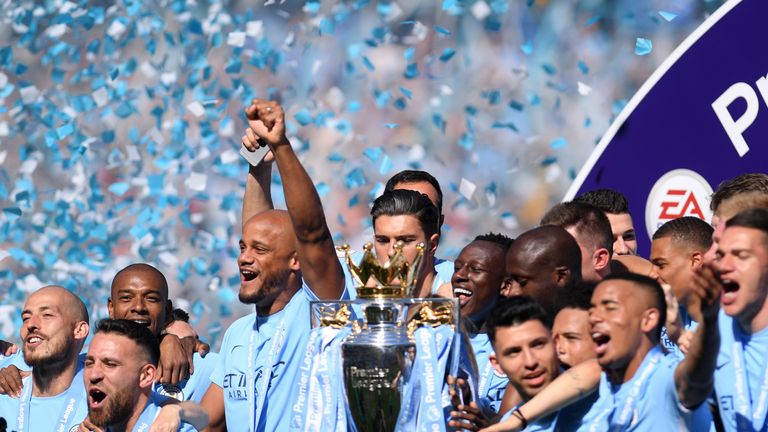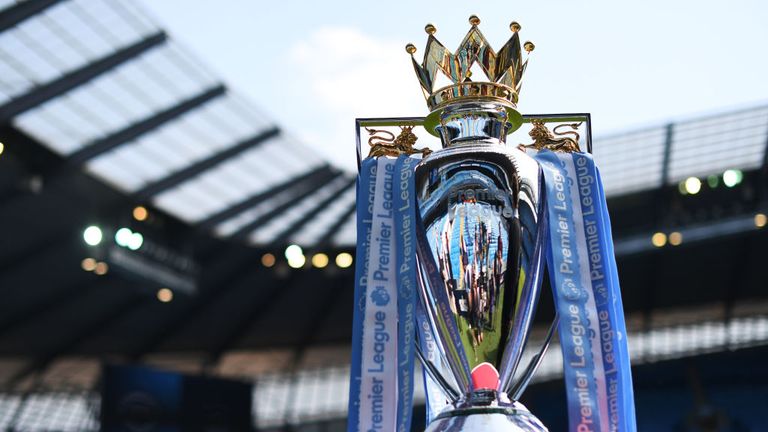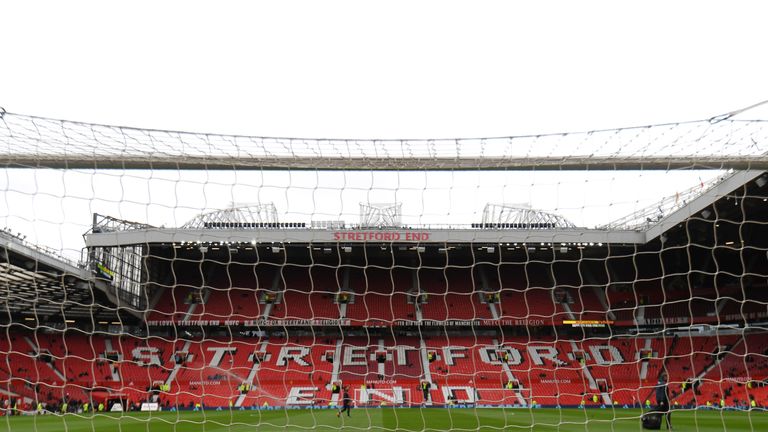Premier League clubs make record profits as wage bill nears £3billion
Thursday 25 April 2019 10:54, UK
Premier League clubs made record revenues last season but rising wages cut into profits as 'the big six' continued to pull away from the pack in financial terms.
With all of last season's accounts now filed at Companies House, financial analysts Deloitte and Vysyble have compiled reports looking at the overall picture in England's top flight.
Overall turnover reached £4.8billion in 2017-18, up £200m on the season before, but the combined wage bill rose by £400m to £2.9billion, with the average league wage/revenue ratio rising from 55 to 59 per cent.
This meant operating profits fell 16 per cent to £0.9billion and the overall pre-tax profit slipped to £0.4billion from 2016/17's record figure of £0.5billion.
There is a chasm between Arsenal, Chelsea, Liverpool, Manchester City, Manchester United and Spurs, and everyone else.
According to Deloitte, the increase in revenue is "in part attributable" to all bar Arsenal from the big six playing in the Champions League last season - a record for the league in terms of the number of clubs in Europe's most lucrative
competition - and all five of them reaching the last 16.
This significantly boosted those clubs' broadcast, commercial and matchday turnover.
Furthermore, Spurs' relocation to Wembley enabled the north London side to increase their hospitality, ticketing and sponsorship income.
This enabled them to post world record post-tax profits of £113m last season, just beating Liverpool's profit of £106m for the same period.
In fact, Spurs contributed more than half of the league's entire matchday revenue growth and nearly a quarter of its commercial growth, while Liverpool and Spurs combined for 58 per cent of the league's total pre-tax profit.
When you add Arsenal, Chelsea and the two Manchester clubs to the mix, the contrast with the rest of the league gets starker.
According to Vysyble, the big six accounted for 89 per cent of the league's pre-tax profits, £401m, up from 36 per cent, £179m, in 2016-17.
The six richest clubs earned more than £53.4m a week between them, up from £48.4m, while the remaining 14 combined to earn £39.4m a week, down £200,000 on a year before.
The gap between the sixth and seventh clubs ranked by turnover - Spurs to Everton - grew from £77m to £192m, and the revenue gap from the top to the bottom - Manchester United to West Brom - was £465m, the widest it has ever been.
Deloitte's analysis was focused on the cost of talent and it noted that nearly half of the league was spending at least 70 per cent on salaries.
Tim Bridge, a director in Deloitte's Sports Business Group, said: "The increased wage expenditure was expected given the busy transfer market in the 2017-18 season, with two record windows driving estimated Premier League gross spend of £1.9billion.
"However, with the total value of rights expected to only marginally increase in the next broadcast rights cycle, increases in wage and transfer expenditure may be expected to slow in the medium term, as already signalled by the reduced estimated £1.4billion gross transfer spend in the current season.
"With the emphasis now on clubs to generate revenue growth from sources other than central broadcast distributions, it may be that we see the levels of pre-tax profit diminish over the next few years."






